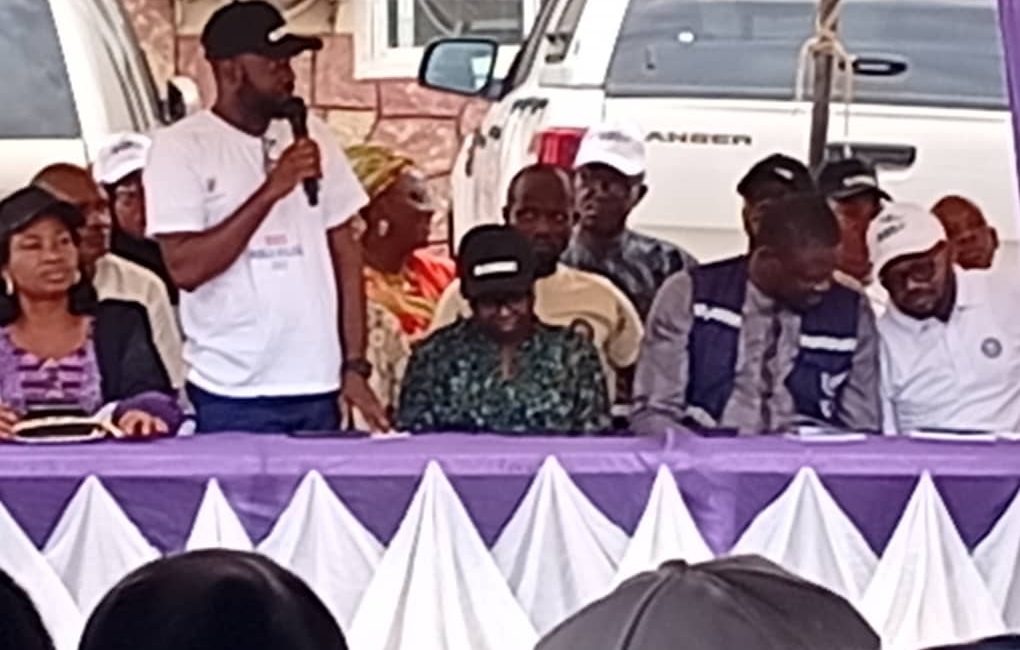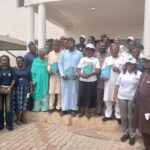The Kogi State Government has reaffirmed its commitment to eliminating malaria, a major public health challenge in the state. The Commissioner for Health, Dr. Abdulazeez Adams Adeiza, represented by the Permanent Secretary, Mrs. Enehe Dorcas Omeneke , made the declaration during the commemoration of World Malaria Day in Lokoja.
According to Dr. Abdulazeez, malaria remains a significant health concern in Kogi State, with a prevalence of 27.7% in the general population and 60% among children under five years. He attributed the endemicity of malaria to factors such as poor hygiene and sanitation, overcrowding, and resistance of mosquitoes to routine insecticides.
The Commissioner emphasized the need for collective action to address the limiting factors that hinder progress towards eliminating the disease. He urged citizens to adhere to best practices in malaria prevention, including the use of treated nets and seeking medical attention when symptoms arise.
The Government has initiated a program offering free testing and treatment for malaria in 536 health facilities throughout the state, as part of a comprehensive strategy to enhance the healthcare sector.
The Commissioner expressed gratitude to the supporting partners and malaria organizations for their valuable contributions in reducing the prevalence of malaria in the state.
The launch event included a road walk and a call to action to sustain the momentum towards achieving a malaria-free Kogi State.
Dr. Francis Akpa, the Director of Public Health at the Kogi State Ministry of Health, underscored the urgency of intensifying efforts to combat malaria, a leading cause of mortality in Nigeria. Dr. Akpa emphasized the critical role of environmental management in preventing malaria, emphasizing the importance of maintaining clean surroundings and eliminating stagnant water sources that serve as breeding grounds for mosquitoes. Drawing from personal experiences, he highlighted the impact of small water collections on mosquito breeding and stressed the necessity of proper water storage and disposal practices.
The Director expressed appreciation for the state government’s support in providing training for healthcare workers and case management officers. He expressed optimism that upcoming projects, such as the SWAP and HOPE initiatives, will offer additional resources for comprehensive training and education to reduce malaria incidence in Kogi State.
In a goodwill message, Dr. Gwomson Dauda of the World Health Organization (WHO) commended the Kogi State Government for spearheading the World Malaria Day celebration and acknowledged the partnership with Malaria Consortium. He emphasized the significance of the occasion, highlighting the imperative to reinvest, reimagine, and reignite efforts to combat malaria, a longstanding challenge that has persisted for decades.
The WHO has made significant progress in preventing malaria infections globally, and the representative expressed gratitude to the state government for allowing WHO to work with the people of Kogi State. He emphasized the importance of putting WHO strategies into practice, particularly at the primary healthcare level, to detect and treat malaria effectively.
The representative of WHO highlighted key areas for focus, including community education on preventing malaria, proper use of mosquito-treated nets, and eliminating stagnant water that breeds mosquitoes. He also stressed the need for continued collaboration between the state government and stakeholders to combat malaria effectively.
The Kogi State Program Manager of Malaria Consortium expressed gratitude to partners and stakeholders for their support in commemorating World Malaria Day. The theme “Malaria Ends With Us” emphasizes the need to reinvest, reimagine, and reignite efforts to combat malaria, a pressing public health challenge.
He added that Malaria Consortium has been partnering with the Kogi State Ministry of Health since 2021 to implement seasonal malaria chemo prevention, reaching over a million eligible children each year. The program has scaled up from 9 LGAs in 2021 to 21 LGAs, with a target of 1,217,398 children in 2025.
The malaria Consortium team reported significant improvements in malaria reduction in Kogi State, from 22% in 2018 to 16% in 2023. This progress represents thousands of lives saved and illnesses prevented. However, the goal remains to achieve a malaria-free community across all LGAs.
The Program Manager of Malaria , Dr Stephen Ake called for continued investment, innovation, and collaboration with partners to achieve a malaria-free Nigeria. He appreciated the Honorable Commissioner for Health and other stakeholders for their support and leadership in the fight against malaria. He also honored healthcare workers, caregivers, and champions for their contributions to the cause.
Dr. Ake cited the importance of collective action in ending malaria, highlighting the theme “Malaria Ends With Us.” He noted that various partners, including Malaria Consortium and WHO, are working together to combat malaria in the state.
The program manager also outlined key strategies for malaria prevention, including environmental health, sanitation, and proper water management. He also mentioned the importance of home diagnosis and treatment, as well as creating awareness in communities to ensure that interventions are effective.
Dorothy Onoja
PRO
Ministry of Health







